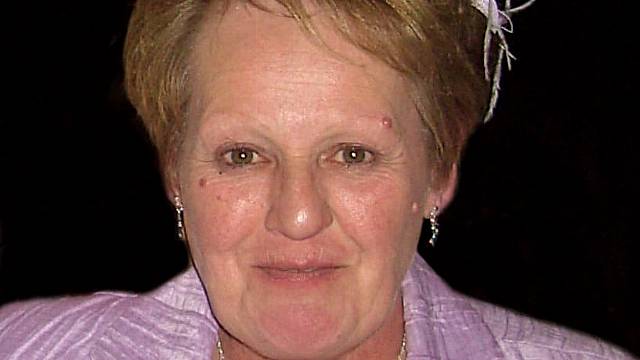A verdict of medical misadventure has been returned into the death of a Dublin woman after an inquest heard evidence that medical staff at one of the country’s largest private hospitals missed several opportunities to diagnose a cancerous tumour on her spine.
Bridget McKeown (68), a mother of three from Balbriggan, Co Dublin, died at a nursing home in Swords on September 30th 2019 over four months after her family had discharged her from the Beacon Hospital in Sandyford against medical advice because of their concern over her care at the facility.
Post-mortem results showed that Ms McKeown had died of acute respiratory failure due to pneumonia linked to tumours on her lung that had spread from previously having cancer of the kidney.
However, the coroner, Cróna Gallagher, said the undiagnosed tumour which had caused spinal cord compression was a “significant contributory factor” in her death.
While Dr Gallagher acknowledged that some people equated a finding of medical misadventure with negligence, she stressed that it was “a neutral verdict” as she could neither blame nor exonerate any person in relation to a death.
“It just reflects the sequence of events that pertained to this death,” she explained.
Diagnosis
The coroner said the verdict of medical misadventure reflected the simple fact that none of the specialists who had examined Ms McKeown had made the diagnosis of spinal cord compression and that opportunities to intervene “were not taken.”
She noted that there was “a matter of conflict” over whether medical staff at the Beacon were aware if scans of the patient’s entire spine had been taken.
On the final day of a three-day inquest which began last year, the deceased’s son, Michael McKeown, claimed doctors at the Beacon had failed to identify “classical red flag indications.”
Mr McKeown argued there were “major systemic issues” with the private hospital that had contributed to his mother’s death and which could not be attributed to “one or two isolated oversights.”
He reminded the coroner that his mother had walked unaided into the Beacon Hospital with a suspected gallbladder condition.
Mobility
However, Mr McKeown said she had no mobility left and was paraplegic by the time she was taken out of the Beacon 19 days later on May 14th, 2019.
Fighting back tears, Mr McKeown recalled how his mother was an active, healthy woman just shortly before she attended the hospital.
He claimed vital early signs that she was suffering from spinal cord compression were missed.
Mr McKeown pointed out that three consultants who had given evidence to the inquest had confirmed the highly time-sensitive nature of diagnosing the condition in order to provide appropriate care.
Although his mother had undergone “a battery of tests” at the Beacon, Mr McKeown said the hospital had failed to diagnose that she had spinal cord compression.
He maintained doctors at the Beacon had also taken a considerable amount of time before they had sought a neurologist to examine his mother.
The inquest heard that a consultant surgeon had asked for Ms McKeown to be reviewed by a neurologist but it had taken five days before she was seen by the specialist.
While scans of his mother’s spine were ordered in good faith, Mr McKeown said they were not ordered correctly.
MRI scans
The inquest heard evidence that a cancerous tumour on her spine had not been captured by various MRI scans because scans of her entire spine had not been carried out.
The Beacon’s director of radiology, Patricia Egan, told the hearing on Thursday, that she believed that a doctor at the hospital had thought he had ordered a scan of the full spine.
However, the inquest heard there had been an ambiguity in the descriptions of scans available in a drop-down menu used when ordering scans.
Dr Egan confirmed changes to the system for ordering scans to remove the ambiguity were made in June 2022.
Mr McKeown pointed out that the neurologist who examined his mother had not identified that she had a spinal cord compression.
He said the neurologist had only ordered a repeat scan because his family were upset about their mother’s care.
Mr McKeown also expressed concern about delays in getting his mother’s medical records from the Beacon.
He also noted that the pathologist who carried out a post-mortem on his mother’s body had admitted he would have carried out a more detailed examination of her spine if he had been aware of the family’s concerns.
The pathologist, Anthony Dorman, said he did not believe the cancer on the patient’s spine had contributed to her death.
However, Liam Grogan, a consultant oncologist at Beaumont Hospital who treated Ms McKeown after she had discharged herself from the Beacon, said he believed the spinal cord compression that she suffered as a result of the cancer was “a significant factor in her early demise.”
Lawyers for the Beacon as well as several doctors who treated Ms McKeown had urged the coroner to return a narrative verdict as they claimed there was a gap in time between the events at the hospital and her death.
At the conclusion of the inquest, Dr Gallagher said she would write to the HSE clinical lead in radiology and all the relevant training bodies to make them aware about the issues with the drop-down menu for ordering MRI scans of the spine at the Beacon and whether they would also need to make similar changes.
The coroner said she would also welcome and endorse any additional oversight of a healthcare facility that would improve patient safety.
Outside the court, Mr McKeown said he was very happy with the verdict but highlighted how no State body currently had powers to investigate any issues in relation to private hospitals pending the full enactment of the Patient Safety (Notifiable Incidents and Open Disclosure) Act.
It is understood that the McKeown family has also lodged a series of complaints against a number of doctors at the Beacon to the Medical Council.







